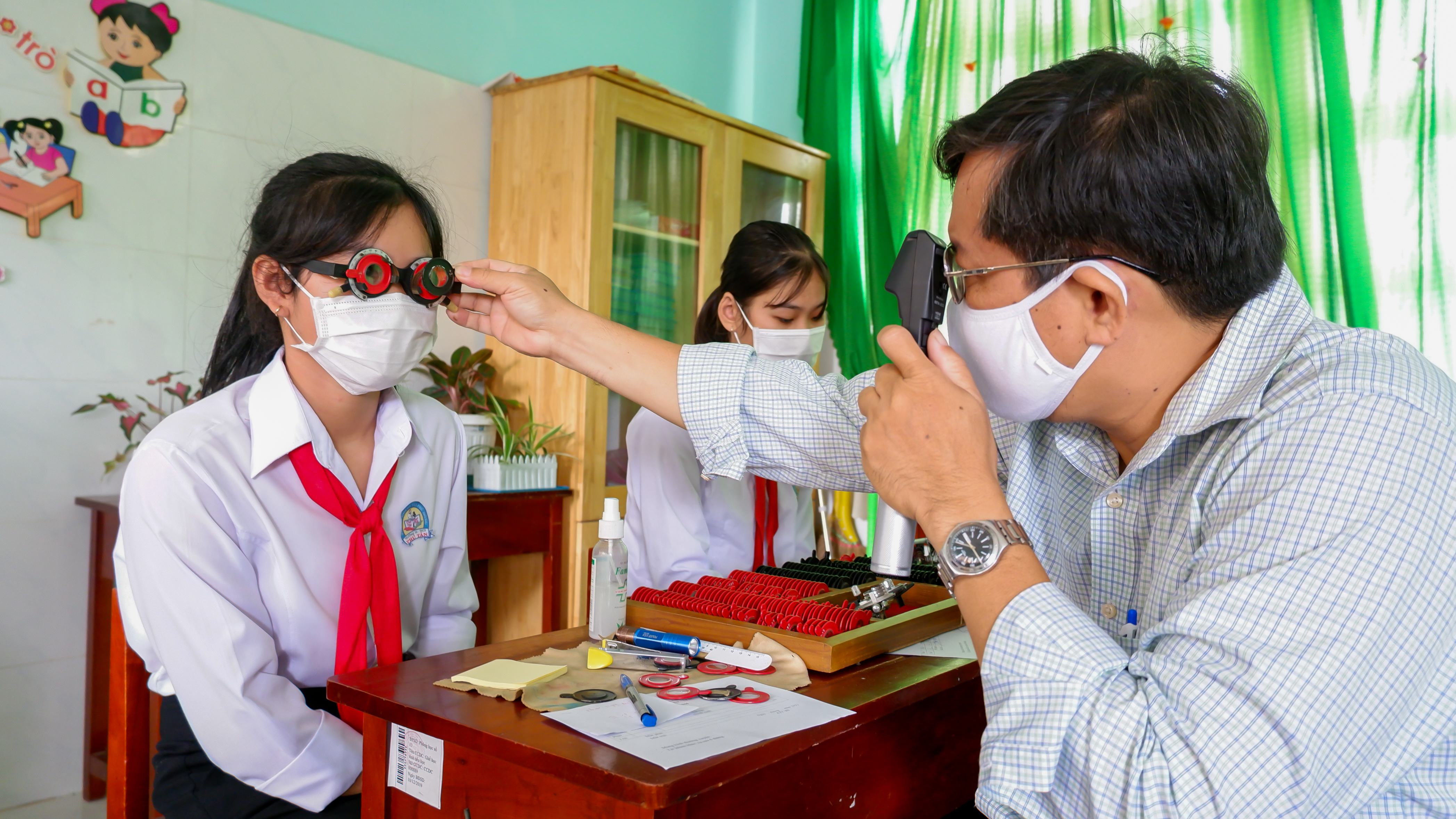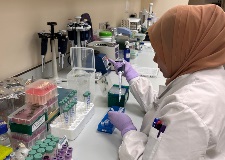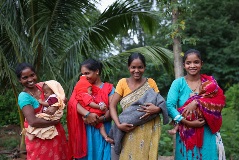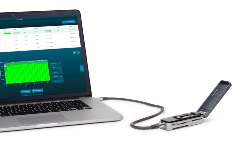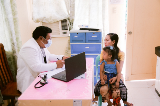Project Partner: Vision Catalyst Fund, Clinton Health Access Initiative, The Fred Hollows Foundation
Geographies: Vietnam
What is the core idea of the pilot?
Poor vision remains a major public health problem in Vietnam for more than 3 million school going children (11% of children). 1.7 million of those have an uncorrected refractive error which can be easily corrected if detected and treated early.
Improved eye health can help unlock full potential of children by improving physical health, wellbeing and educational outcomes. Vision screening in a school-based setting is an effective platform to detect and subsequently treat uncorrected refractive error, and there is an opportunity to support the Government of Vietnam in scaling up services. 50% of all schools must screen and diagnose early non-communicable diseases, including vision-related diseases.
Why is this innovative?
This new eye health school-based programme was created and tested using the Social Impact Guarantee (SIG) model.
- For Impact Funders, the SIG enables them to increase the impact of its funds by ensuring that every dollar achieves intended outcomes — a breakthrough when most rigorous evaluations show that most social interventions have little or no effect
- The Guarantor is now incentivised to provide ongoing support to the service provider in using their networks, experience, and expertise
What will success look like?
Policy change at the national and provincial level, as well as broader health and education outcome improvement:
1. National eye health programme and policies are functional and updated based on output from school health data system
2. Over 50,000 children are provided with spectacles by the end of Year 3
3. Vulnerable patients’ out-of-pocket expenses for eye health are reduced
Scale the SIG model other geographies to mobile funding towards vision impairment issues:
- Prioritised geographies: Bangladesh, Cambodia, Nepal & Kenya
How will success be achieved?
A National School Eye Health Guideline will be endorsed by the Ministry of Health and Ministry of Education and Training, which would require and (at least partially) resource all schools to implement the best-in-class school eye health programme based on the strategic pilots.
- Expect to screen over 500,000 children over 3 years
- Provide referral pathway for those requiring specialized support
- Prove the value of eye health to get political buy-in from local government;
- Build the capacity of local governments to take it forward;
- Develop best-in-class school eye health programme templates that can be readily duplicated across the nation.
Who is leading the project?
About Vision Catalyst Fund: The Vision Catalyst Fund (VCF) builds on the legacy of The Queen Elizabeth Diamond Jubilee Trust, Standard Chartered Bank’s Seeing is Believing, and Essilor’s See Change campaign to bring together key players from across the eye health ecosystem to raise capital and invest in avoidable blindness. VCF works across the globe on health systems strengthening, market shaping and multi-sector collaboration at scale.
The Clinton Health Access Initiative is dedicated to transforming healthcare in LMICs. Founded in 2002, CHAI focused on combating HIV/AIDS and has since expanded to address other major health challenges, including infectious diseases and maternal and child health.

